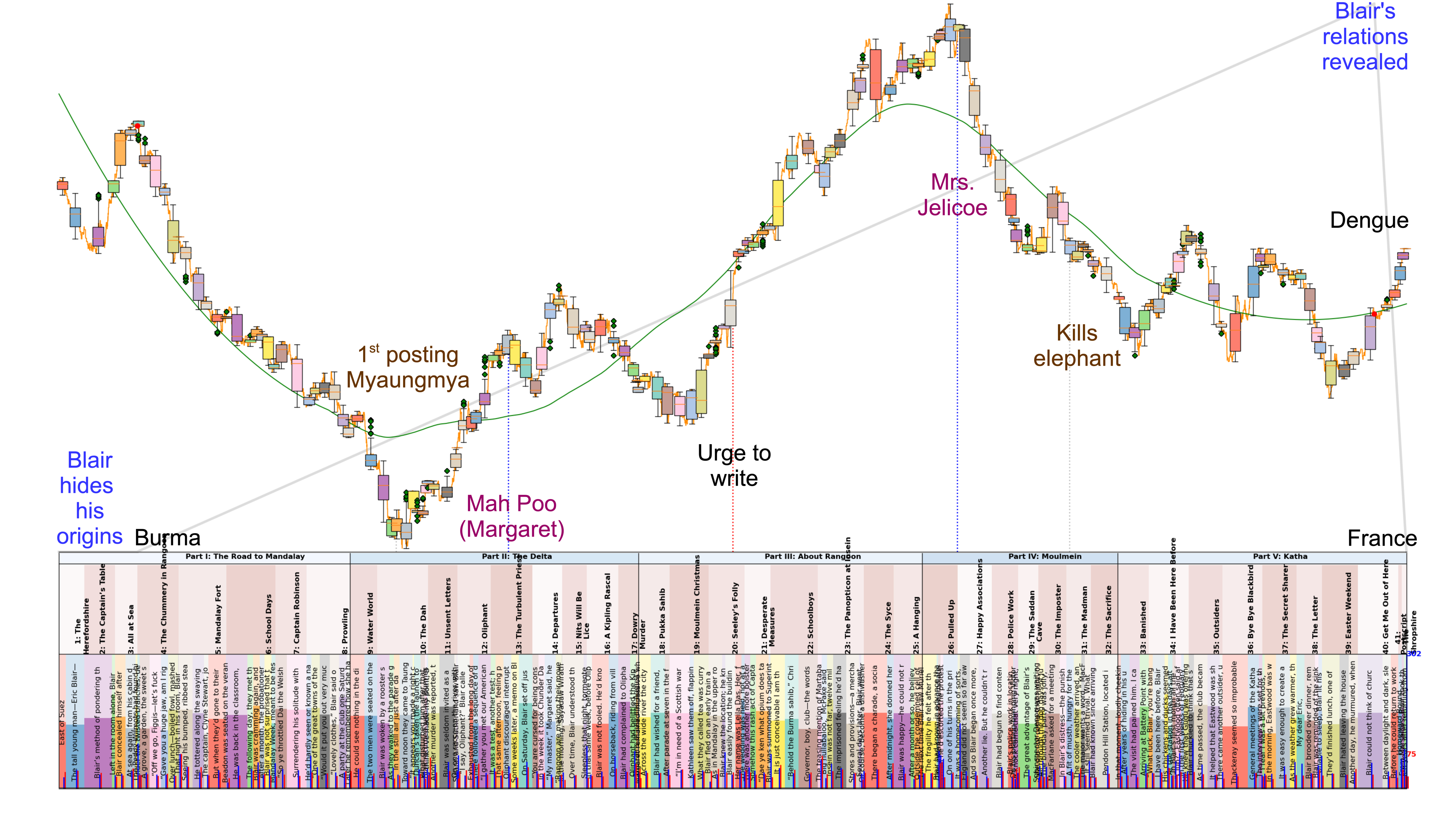Agenda
- Why We're Here / Roundtable Rules
- Introduction to Literary Forensics
- Group Discussion
- Further Study
Why We're Here
We writers want to improve our craft
by reading like a writer
We learn from each other
using Literary Forensics
Roundtable Rules
Always refer back to the book
Practice active listening & serendipity
Every feeling and observation is valid...
but not every conclusion
Always refer back to the book
Reading Teaches Writing
Meet today's author: Paul Theroux
- Born in Massachusetts in 1941, Theroux was a Peace Corps volunteer in Malawi, expelled, then taught at universities in Uganda and Singapore.
- Theroux has lived in Africa / SE Asia for 10 years, UK for 18 years, Hawaii for 35 years. While in Uganda he met his mentor, V. S. Naipaul. He is the brother of authors Alexander Theroux and Peter Theroux, uncle of American actor/screenwriter Justin Theroux, and father of English-American authors/documentary filmmakers Marcel and Louis Theroux.
- Theroux published his first novel, Waldo, in 1967, and since then has written over 60 books, including The Great Railway Bazaar (1975), Riding the Iron Rooster (1983), and Mr. Bones: Twenty Stories (2014).
- In 2015 he was awarded a Royal Medal from the Royal Geographical Society for his travel writing.
- His novels Saint Jack, The Mosquito Coast, and Doctor Slaughter (Half Moon Street) have been adapted for film and television.
- Since 1964 he has always been working on a book; he's a serial writer.
- Theroux needs absolute silence to write; must live in a detached house, for the quiet. Writes 5-6 days a week, just after breakfast, in longhand with a Lamy Pen (thin nib; large amount of ink) on high quality lined white A4 paper. If raining, he writes indoors; if sunny, he writes on a clipboard on the beach. He's a plotter, not a "plunger" (pantser).
- Burma Sahib is Theroux's 30th novel.
“Any book I’ve written, I would say it’s an individual who’s isolated,
who has got to solve a problem. . . . I write about people who are separated. . . . that tends to be my subject.”
—Paul Theroux
“If anyone asks me, ‘I want to become a writer, what shall I do?’ I say, well, ‘Do you live at home?’ ‘Yeah.’ I say, ‘Well leave. Leave home.’ ‘What do you think I should do, should I go to the Iowa Writers Workshop?’ I’d say, ‘No. Why don’t you become a teacher in Uzbekistan. Why don’t you go to Africa. You know, become a humble teacher in Malawi, or learn Spanish, go to Mexico. In other words, put yourself in a precarious position where you’re small and you need to be a watchful, like an endangered animal—an animal that’s under siege by other animals. And then all your senses will be alert. And then read, if you want to become a writer. Read, read, read.’”
—Paul Theroux
“Reading made me a writer. Reading made me a traveler, travel made me a writer.”
—Paul Theroux
"You want to become a writer, you want to become a real reader, do that: read all the books, all the poems, all the books, then read the autobiography, and read the biography. And then you can say, ‘I know that writer.’"
—Paul Theroux
“You can’t write if you don’t read.”
—Paul Theroux
What do you feel?
What in the book elicited that feeling?
Every feeling and observation is valid...
but every conclusion should be questioned
We practice serendipity
- nothing is too crazy
Always refer back to the book
What do you notice?

Writing Burma Sahib
- Theroux began writing Burma Sahib in 2022, after he had read all of Orwell's writings and biographies, and discovered very little on Orwell's time in Burma. Theroux found Burmese Days lacking vérité because Orwell fictionalized the details of his experience there, so he set to writing the autobiographical novel that he wishes Orwell had written.
- This is Theroux's first historical novel, and he wanted to get the tone correct. He used notes from his four trips to Burma (first in 1970) to places Orwell referenced in Burmese Days. Linguistic & idiomatic research: his English in-laws were contempories of Orwell; living in London he knew writers who knew Orwell (V. S. Pritchett), and he picked up their speech patterns. Theroux read the works of Huxley, Kipling, Wells, Maugham, Lawrence, Forester, Saki, and Jack London that Orwell read, and studied the SE Asian collection at the University of Hawaii library and the 1903 Anglo-Indian dictionary Hobson Jobson.
- “Everything in my book is based on something factual. . . Everything he wrote later, I give them to a character to say.” Everything the seditious monk said, Orwell said in his early essay for a French newspaper, and his name—Sayadaw Wirathu—is that of an activist monk living today.
-
“I have a feeling that all of Orwell’s fiction derives from actual experiences of his life.”
—Paul Theroux - Blair was teased for Eric

Stats & Background
- Marketing: Literary Fiction, Historical Literary Fiction, Genre Literature & Fiction, Biographical Fiction, Biographical Historical Fiction, Mystery, Thriller & Suspense Literary Fiction, Contemporary Literary Fiction
- Genre: Historical Realistic Long-Form Archplot
- Print Pages: 400; Word count: 153,231
Reading Grade: 9th; Avg. wds/sent.: 14.98
Lexical Density: 50.69; Flesch Reading Ease: 67.61 - POV: Eric Blair; Person: 3rd; Tense: Past
- Publish date: February 6, 2024
- Publisher: Mariner Books
- Audio book length: (17 hours, 51 mins)
- Narrator: Charlie Anson
- Recognition: A New York Times "Best Historical Fiction of the Year"
- Theroux’s publisher's feedback: You’re hard on the Scots: "So was Orwell." You’re objectifying women, fox-faced women: "Orwell saw people in animal terms." Using the n-word: "This is the 1920s, mate."
- “Orwell did not have a great imagination. Orwell was a derivative writer. He was derivative of American writer Jack London [The Iron Heel, 1908], of HG Wells . . . he was liberated by D. H. Lawrence . . . he was a huge supporter of Henry Miller . . . Kipling’s Mandalay was one of Blair’s favorite poems. 1984 was derivative of We [1924] by Yevgeny Zamyatin." —Paul Theroux

